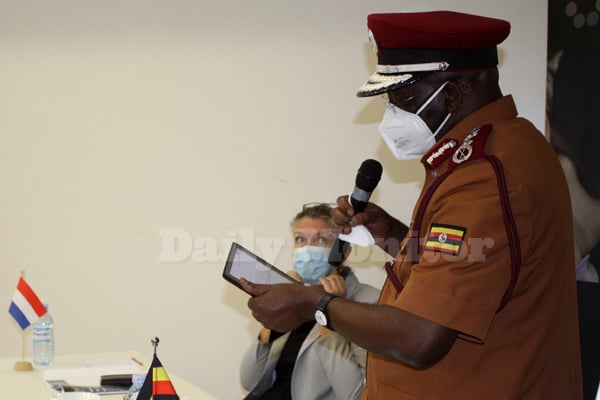Uganda pilots UN project to de-radicalise prisoners

Commissioner General of Prisons Johnson Byabashaija. PHOTO | ANDREW BAGALA
Uganda is one of the four countries in the world that the United Nations has offered support for rehabilitation and reintegration of prisoners.
The four-year project worth $4m (Shs14.5b) is funded by the United Nations Office on Drugs and Crime (UNODC), the Netherlands and European Union.
Speaking at a roundtable consultation on rehabilitation and reintegration of former violent extremist prisoners at Entebbe yesterday, the Commissioner General of Prisons, Dr Johnson Byabashaija, said the project will help them stop radicalisation of prisoners by violent and extremist ones.
“I remember in the 1990s, we used to have people who used knives and killed three or four policemen. When they brought them to prison, I think we created a very big group out of those few. So one of the programmes undertaken by this project is to prevent radicalisation of inmates, who were otherwise not violent and extremists,” Dr Byabashaija said.
Dr Byabashaija said since 2009 Uganda prisons has been getting violent and extremist inmates and it has been a challenge to manage them and also rehabilitate them because of lack of capacity and knowledge.
At least 180 inmates are in prison on allegations of extremism.
More than 36 instructors have so far been trained on management of such inmates as part of the project.
The Ambassador of the Kingdom of Netherlands, Ms Karin Boven, said prisons also provide an opportunity for violent prisoners to disengage from extremism.
“Prison management and necessary reform constitute a fundamental basis for the affected management of all prisoners including violent extremist prisoners,” Ms Boven said.
She, however, said the management of extremist prisoners should be done within the accepted standards for treatment of prisoners under the United Nations rules and other international guidelines.
She cautioned prisons officials against inhumane treatment of inmantes.
The head of UNODC, Ms Sharon Nyambe, said they are looking at safety and security of the violent extremist prisoners, their rehabilitation and reintegration in the community.
Some of these programmes will require spacious detention centres and also engage the prisons authority to create room for rehabilitation of the violent extremist prisoners.
Last week, the United Kingdom warned of a possible terrorist attack on Uganda although security agencies in the country called for calm saying they have put in place measures to detect the sleeper terror cells that entered the country.




